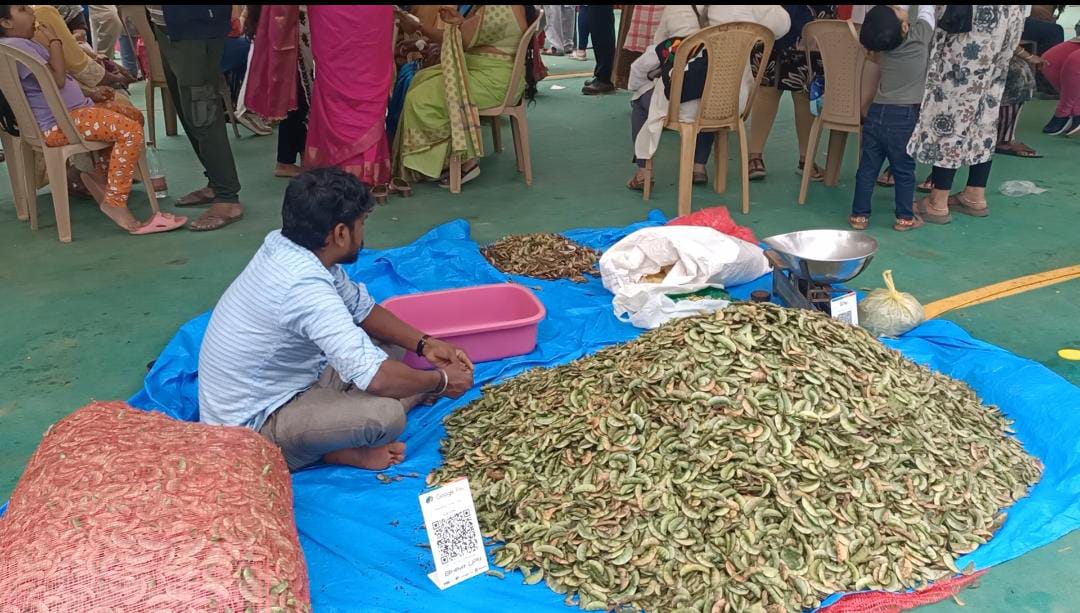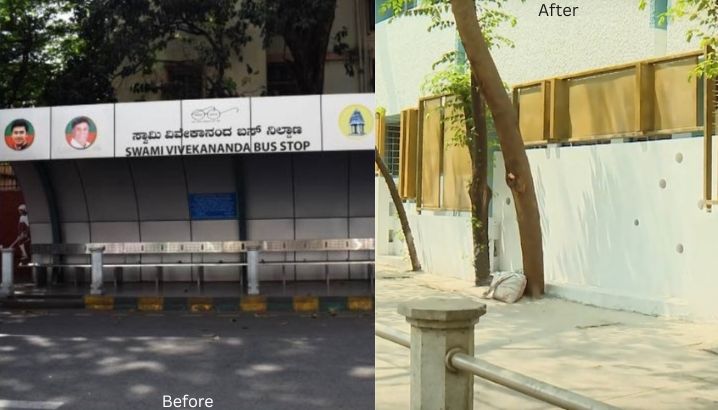Avarebele Mela: A celebration of hyacinth beans with 125 dishes
With the mela attracting over one lakh visitors each day, it continues to stand as a testament to the region's love for food, culture, and community
-
The mela runs daily from 11 am to 11 pm until 5 January, offering an extraordinary culinary experience. PHOTO: PRIYANKA SAHARIA
BENGALURU, 1 JAN
Basavanagudi saw a large crowd as
the Avarebele Mela returned for its 25th edition. Held at the National College
Grounds in Basavanagudi, Bengaluru, this vibrant festival celebrates the
versatility of hyacinth beans, locally known as Avarebele or Avarekalu.
The mela runs daily from 11 am to
11 pm until 5 January, offering an extraordinary culinary experience. Visitors
can savour over 125 dishes, ranging from traditional South Indian favourites
such as bonda, holige, vada, akki roti, and dosa to innovative creations like
gulab jamun, pasta, pizza, and even ice cream—all infused with the unique
flavour of Avarebele. With prices between Rs10 and Rs100, the mela ensures an
affordable treat for all.
17-year-old Ansh who visited the
Avarebele mela with his sister and friends said, “We all are here because it
looked fun and different”.
Another visitor Namita said, “We
tried holige, dosa, pakoda, and jalebi. While these are common dishes, the
addition of Avarebele makes them unique. My mother, daughter, and I—three
generations—are enjoying this experience. The green jalebi was a surprise!
Despite the bean blend, its original taste and crispiness remain intact.”
The festival’s origins trace back
to 2000 when Swathi KS, proprietor of Shree Vasavi Condiments, identified an
issue with the short shelf life of peeled hyacinth beans. “The farmers
who brought the beans to sell often discarded them by evening, as the peeled beans spoil
quickly. My mother noticed this and began collecting the surplus beans from
farmers, turning them into savoury items to extend their shelf life,” Swathi
said. The mela also serves to honour the farming community.
Despite the global popularity of
edamame, Avarebele remains relatively unknown outside South India. Swathi said
she wants the whole of India and the world to know about Avarebele.
According to folklore, a 13th-century
Hoysala king, Veera Ballala II, lost in a forest, was offered boiled beans and
water by an old woman. In gratitude, he named the area Benda Kaalu Ooru,
meaning “The City of Boiled Beans,” which eventually became Bengaluru.
With the mela attracting over one
lakh visitors each day, it continues to stand as a testament to the region's
love for food, culture, and community. -Salar News
Leave a Reply
Your email address will not be published. Required fields are marked *












.jpg)
.jpg)
.jpg)

.jpg)
.jpg)
.jpg)


